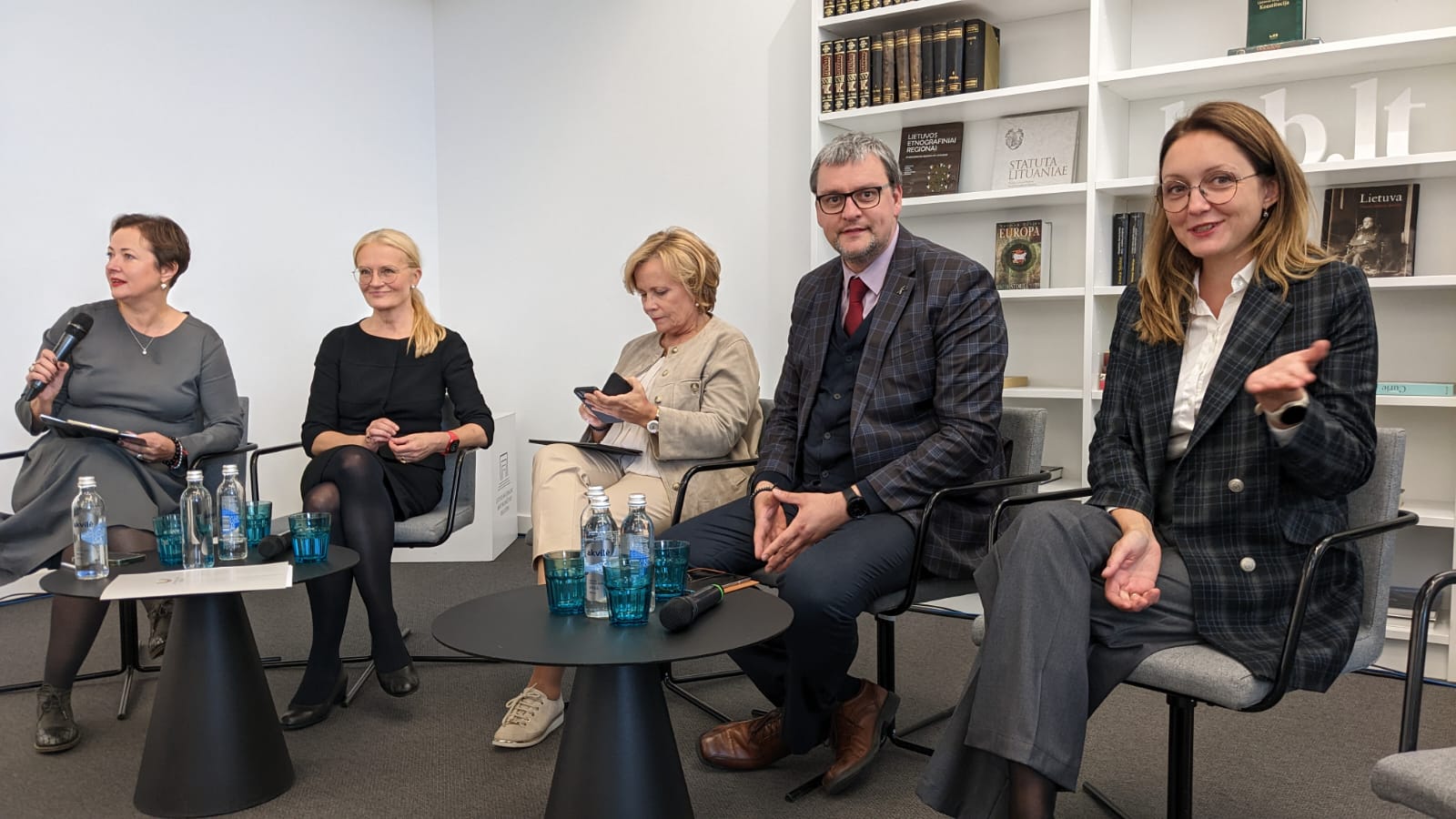 Back
Back

Who is responsible for our digital resilience? That was the question posed by the representatives of DIGIRES Baltic Research Foundation for Digital Resilience and the participants of various discussions and events on countering disinformation throughout autumn. Here are some of the most interesting insights from the speakers.
Today, there are both fact-checking media platforms and digital activists in Lithuania. There seems to be no shortage of media and information literacy (MIL) programs and civic initiatives. International MIL assessments also position Lithuania as a country that monitors and maintains its information space quite well. In terms of national resilience, it would seem that we are quite resilient to disinformation, but are we?
We are resilient, but for how long?
“Whether we are more resilient than other countries depends very much on the narrative. If we talk about Russia’s aggression in Ukraine, then Lithuania understands the situation very well and is clearly several steps ahead and understands the threats. If we are talking about the COVID-19 situation, we would probably be in the statistical average. Information accessibility, media information literacy, and critical thinking education from kindergarten to school would be the most effective measures”, says Vygintas Gasparavičius, Deputy Minister of Culture of the Republic of Lithuania.
According to MEP Rasa Juknevičienė, a survey commissioned by the INGE committee, in which she is actively involved, shows that Lithuania is still more resilient to disinformation compared to other European countries that did not experience the Soviet Union. “And this is a bit of a paradox, yet people who grew up in a democratic environment where lying to the government would cost posts, it was really difficult to believe that Putin was lying.” says Juknevičienė.
Rasa Lukaitytė-Vnarauskienė, who is the editor-in-chief of the news portal Delfi, is convinced that trust in information is still enhanced by the continuous trust in the written word. “People still think that if there was a printed word, it was the right word. Many people say “it’s written on the internet – so, therefore, it is true”. Hence it is becoming much more important to strengthen the traditional media, for the same reason that the traditional media has very clear responsibilities, structure, and accountability to the law,” says R. Lukaitytė-Vnarauskienė.
The harm of disinformation will only get worse
“The scientific problem of disinformation and the spread of misleading information is not the interest and concern of one particular academic discipline or public policy area. There is a lack of common awareness of researchers, media, politicians, experts, and educators, which would show the most urgent gaps in the current situation of controlling disinformation”, emphasizes Dr. Auksė Balčytienė, Head of the UNESCO Chair of the Department of Media and Information Literacy for an Inclusive Knowledge Society at VMU, DIGIRES project coordinator and senior researcher.
“Integrated measures and a joint effort by politicians, public authorities, policymakers, and society as a whole will bring us faster towards our digital resilience goals. Fighting disinformation and limiting harmful content is important and effective, but it should not be the only or the predominant approach. Educating the public about the media, promoting critical thinking, teaching them to evaluate information and check facts are important for resilience”, said V. Gasparavičius, Vice-Minister of Culture.
“Just as every driver has a responsibility to know the rules of the road and to protect themselves and others, so too does every user of the digital space, using 21st-century technologies, have a responsibility to keep the digital space safe. However, public authorities also have a special responsibility, especially in the context of today’s very specific military challenges,” emphasizes R. Juknevičienė, MEP.
Link to the recording of the “UNESCO Week” discussion on building resilience in society organised by the Lithuanian National Commission for UNESCO.